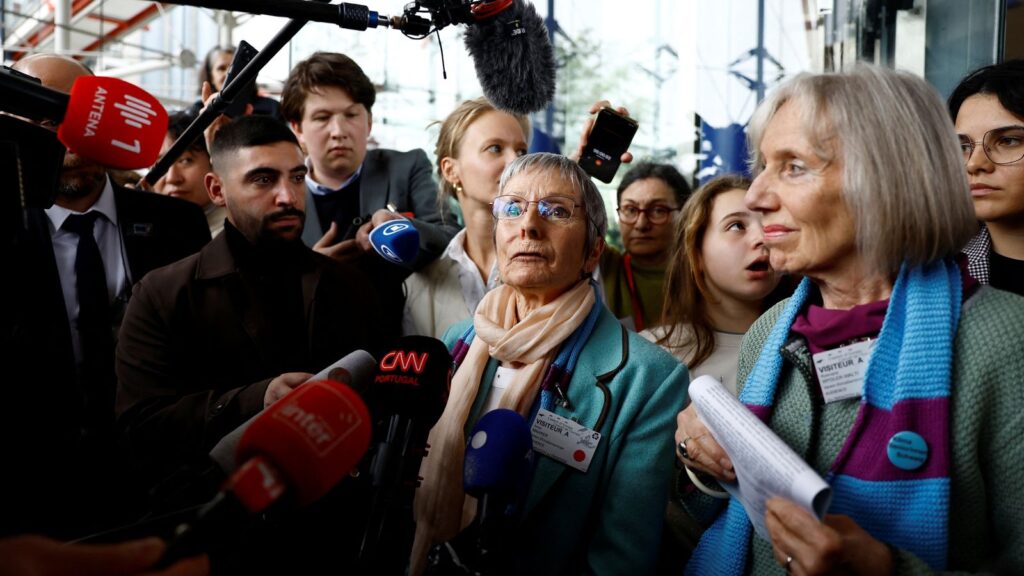Climate Inaction Violates Human Rights, ECHR Rules in Landmark Cases

|
Listen to this story:
|
Key Impact Points:
- European Court of Human Rights rules in favor of elderly Swiss women in a landmark climate case.
- The ruling marks the first time the powerful court has addressed climate change, setting a significant legal precedent.
- The case highlights the intersection between climate change and human rights, emphasizing the need for urgent action.
- Switzerland found in violation of Article 8 (right to respect for private and family life) and Article 6 § 1 (access to court) of the European Convention on Human Rights.
- The ruling may have far-reaching implications for climate litigation and policy across Europe.
- In addition to the landmark ruling in the Verein KlimaSeniorinnen Schweiz case, the European Court of Human Rights (ECHR) also addressed climate-related complaints in two other cases: Carême v. France and Duarte Agostinho and Others v. Portugal.
- The case Carême v. France involved a complaint by a former mayor of Grande-Synthe, alleging France’s inadequate action to prevent global warming, but the application was declared inadmissible.
- Duarte Agostinho and Others v. Portugal concerned the severe effects of climate change, with the applicants claiming violations of their rights, but the case was declared inadmissible due to non-exhaustion of domestic remedies and lack of grounds for extending extraterritorial jurisdiction.
Verein KlimaSeniorinnen Schweiz and Others v. Switzerland
In a groundbreaking decision, the European Court of Human Rights (ECHR) has issued a landmark ruling in a climate case brought forward by a group of elderly Swiss women. The ruling, which marks the first time the influential court has tackled climate change, underscores the pressing intersection between environmental concerns and fundamental human rights.
The case, brought by the Verein KlimaSeniorinnen Schweiz and Others against Switzerland, revolves around the adverse effects of global warming on the lives, health, and well-being of older women in Switzerland. The applicants argued that the Swiss authorities had failed to take adequate measures to mitigate the impacts of climate change, violating their rights under the European Convention on Human Rights.
In its judgment, the ECHR found that there had been a violation of Article 8 of the Convention, which safeguards the right to respect for private and family life. The court held that individuals have a right to effective protection from the serious adverse effects of climate change by state authorities. However, it declared the complaints of the four individual applicants inadmissible, citing the stringent victim-status criteria under Article 34 of the Convention.
Nevertheless, the court recognized the standing of the applicant association, Verein KlimaSeniorinnen Schweiz, affirming its right to bring a complaint on behalf of its members who are subject to specific threats or adverse effects of climate change. The ruling also highlighted a violation of Article 6 § 1, which guarantees access to court, emphasizing the importance of effective judicial remedies in climate-related matters.
The judgment signals a significant legal milestone, shedding light on the profound implications of climate change for human rights protection. By holding Switzerland accountable for its inadequate response to climate change, the ruling underscores the urgent need for robust climate action and policy measures.
Moreover, the decision sets a precedent for future climate litigation, potentially influencing climate policy and legal frameworks across Europe. It underscores the imperative for governments to adopt comprehensive strategies to mitigate the impacts of climate change and safeguard the rights of vulnerable populations.
RELATED ARTICLE: Dutch Court Rules KLM’s Sustainability Advertising Breached EU consumer law
Carême v. France & Duarte Agostinho and Others v. Portugal
In addition to the landmark ruling in the Verein KlimaSeniorinnen Schweiz case, the European Court of Human Rights (ECHR) addressed climate-related complaints in two other significant cases, shedding further light on the complex intersection between climate change and human rights.
In the case Carême v. France, the court examined a complaint brought by a former mayor of Grande-Synthe, alleging that France had failed to take sufficient steps to prevent global warming, thereby violating the right to life and the right to respect for private and family life. However, the application was deemed inadmissible by the ECHR, as the applicant did not meet the victim-status criteria under Article 34 of the Convention.
Similarly, in the case Duarte Agostinho and Others v. Portugal and 32 Others, the court considered complaints regarding the severe effects of climate change on the lives, well-being, and mental health of the applicants. However, the case was declared inadmissible due to the applicants’ failure to exhaust domestic remedies and the absence of grounds for extending extraterritorial jurisdiction.
While these cases did not result in judgments against the respondent states, they highlight the growing recognition of the importance of addressing climate change through legal avenues. Despite the legal complexities and challenges involved, the cases underscore the imperative for robust climate action and the need for effective judicial remedies to protect human rights in the face of environmental threats.
As the global community grapples with the escalating impacts of climate change, the rulings serve as a reminder of the critical role of the judiciary in upholding fundamental rights and holding governments accountable for their obligations to mitigate the effects of climate change. They underscore the need for concerted efforts to strengthen legal frameworks and ensure the effective protection of human rights in a changing climate.






